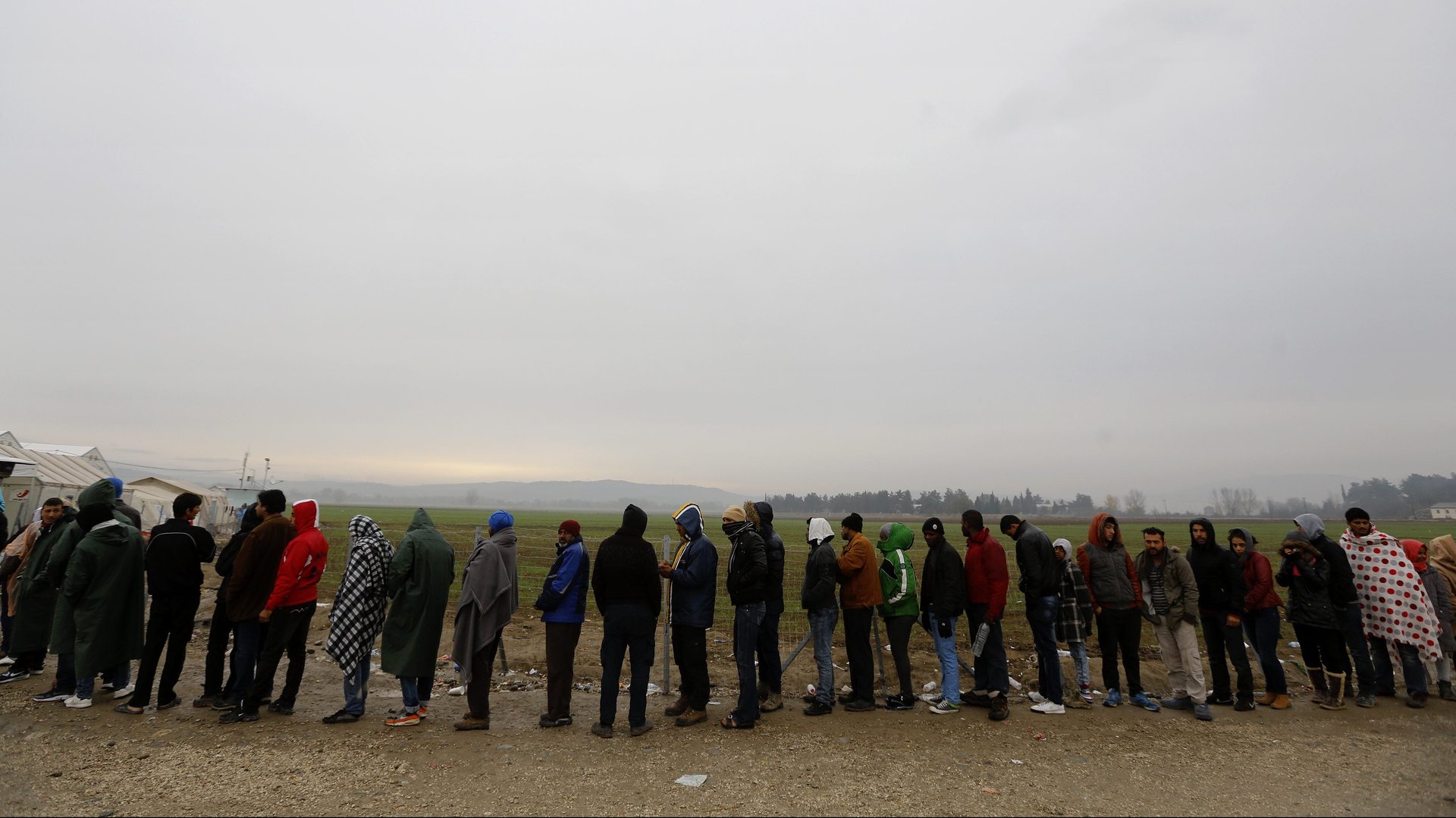What effect did the record influx of refugees have on jobs and crime in Germany? Not much
US president Donald Trump kicked off his candidacy in June of 2015 with an polarizing speech attacking Mexican immigrants, insisting they were wrecking havoc in the US. He promised to build a wall to keep out immigrants “bringing drugs” and “bringing crime.” And he used Germany as an example of what can go wrong with an open-door policy on refugees, describing chancellor Angela Merkel’s approach as a “disaster” and insisting crime rose to levels “that no one thought they would ever see” in Germany.


US president Donald Trump kicked off his candidacy in June of 2015 with an polarizing speech attacking Mexican immigrants, insisting they were wrecking havoc in the US. He promised to build a wall to keep out immigrants “bringing drugs” and “bringing crime.” And he used Germany as an example of what can go wrong with an open-door policy on refugees, describing chancellor Angela Merkel’s approach as a “disaster” and insisting crime rose to levels “that no one thought they would ever see” in Germany.
Now, the first comprehensive study to look at economic and social effects of the one million refugees fleeing to Germany is out, and it flatly contradicts Trump’s assertion: The refugee influx to Germany in 2014 and 2015 wasn’t followed by a “crime epidemic,” co-researcher Martin Ungerer, from the Centre for European Economic Research, says.
There were “muted increases” in some criminal activity in the immediate aftermath of the record influx of refugees in Germany. The study, which looked at federal records on refugee allocations, data from state-run reception centers, and federal crime data, saw an uptick in drug crimes and fare-dodging in areas with bigger reception centers. These large reception centers were also associated with increased minor crime for German citizens. Ungerer suggests this could be explained in part by the “increased police presence” around large reception centers.
The study reinforces what the federal government said last year: Refugees committed crimes at the same level as native Germans, according the German Federal Office of Criminal Investigation (BKA). The agency released the statistic to “dispel rumors” about a crime wave in Germany.
“They [the paper’s findings] are broadly consistent with other, peer-reviewed work on the effects of immigration more generally,” says J. L. Spenkuch, an economist at Northwestern University. He says that immigrants in the US are no more likely to commit violent crimes than natives, though there are small differences in less serious offenses. “It is reassuring to see that these results appear to hold up when it comes to refugees and Germany,” he adds.
Ungerer’s study focused specifically on refugees—migrants who were forced to flee their country as a result of war or persecution—in Germany. Similar research in the US by Christopher Salas-Wright, an assistant professor at Boston University’s School of Social Work, found what he described as “clear and compelling evidence that refugees are substantially less likely than those born in the US to report involvement in a variety of non-violent and violent criminal behaviors.”
Since he took office, Trump has doubled down on his assertions that immigrants cause more crimes. Trump has signed 18 executive orders and memos in his first two weeks as president. Among them is a plan to publish a weekly list of crimes committed by immigrants. Trump has also slammed his predecessor Barack Obama for agreeing to a one-off deal that has the US resettling 1,200 refugees from Iran, Afghanistan, and Iraq that Australia has refused to accept and is holding in offshore detention centers. Trump reportedly accused the Australian prime minister of seeking to export the “next Boston bombers.”
Ungerer also looked at the impact of the refugee crisis on Germany’s labor market. The study found little evidence of a “displacement effect”—refugees taking jobs from German workers. In fact, most refugees were actually “struggling to find work,” Ungerer says. His findings highlighted the difficulty of quickly integrating refugees into the German labor markets. While there’s currently little evidence of native workers losing out on jobs to refugees, Ungerer says he can’t rule out displacement in the long run.